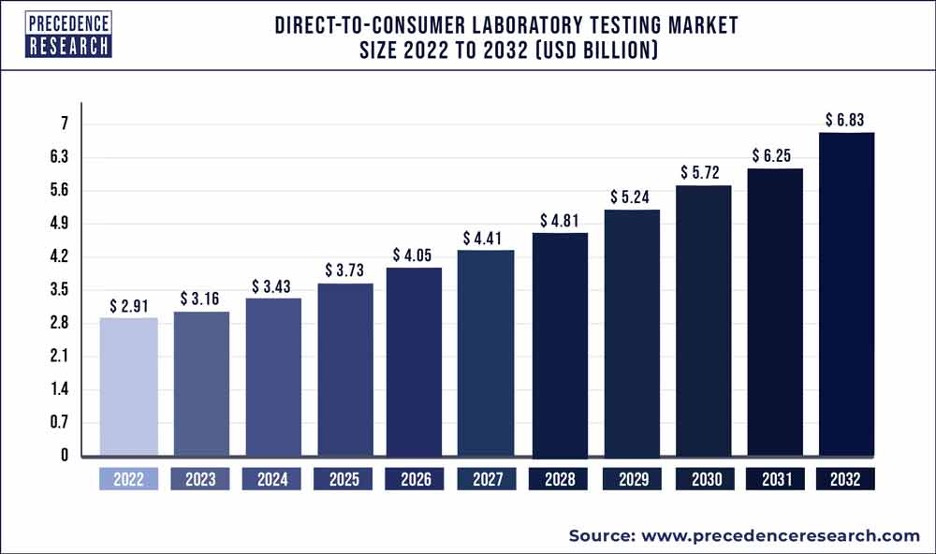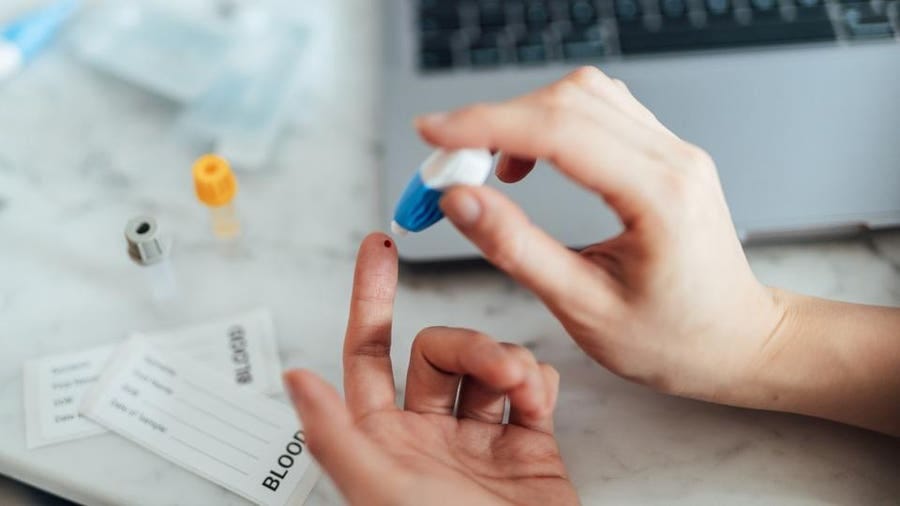Diagnostic Overload: The Era of Consumer Health Testing
As preventative healthcare becomes all the rage, direct-to-consumer health tests have exploded producing a generation of hypochondriacs and increasingly expensive healthcare.
This week I went down to my local Quest Diagnostics and purchased a $365 comprehensive women’s health testing panel. The test included several blood samples, a urine samples, and various physical biometrics taken by the phlebotomist which took about 15 minutes total. My reasoning for doing this was twofold: firstly, I haven’t gotten around to getting a new PCP in Austin since I’ve moved and haven’t had general blood work for cholesterol levels done in quite some time, secondly, I wanted to check my glucose levels as well as other biomarkers indicating thyroid function, kidney function, liver function, and so on.
Since beginning my role as an investor in this space and frankly for years before that, I have been inundated with so many direct-to-consumer health products, diagnostics, and more. With the recent publicity around concierge longevity services such as Function Health and another company that most recently emerged from stealth, Superpower, I have become extremely curious about my true “biological age” and the health of my internal systems. As an active 26-year-old, there is no cause for concern, but with so much talk of environmental toxins, contaminated food, insulin resistance, etc. I continue to wonder whether I could be healthier and feel better with changes based on the results of a few simple tests.
Access to this health data is now available to most everyone with a few hundred dollars to spend. The market for D2C diagnostic testing has exploded in recent years valued at close to $3 billion in 2022, it is expected to hit almost $7B by 2032. There are a number of companies previously discussed running D2C testing for longevity medicine, gut microbiome, and genome sequencing. Everywell, based here in Austin, was one of the first D2C health testing companies providing accessible, innovative, and insightful at-home lab tests. Everlywell offers over 30 different at-home tests, covering areas such as food sensitivity, Celiac disease, cholesterol, men's and women's health, and fertility testing. Their at-home kits range from $49 to $299 and test for everything from food sensitivity to hormone levels. The company has raised over $500 million from investors and supports more than 20 million consumers across North America.
The growing consumer interest in personalized healthcare and wellness has driven a desire to gain deeper insights into personal health and unlock health data that allows individuals to understand predisposition to certain conditions and health biomarkers often overlooked by traditional healthcare. Increased appetite for early disease detection and preventative healthcare measures has driven this demand for D2C tests. Government programs, the rise of medical influencers, and the democratization of health data have increased public awareness and acceptance of these products and services. The rise of e-commerce and digital health platforms has added fuel to the fire, making it easier to access testing and more convenient than ever before.
There has been quite a bit of pushback from traditional healthcare to the “over testing” that has accompanied the increase availability of these resources. D2C pathology is quickly becoming overused and over analyzed eliciting hypochondriac tendencies and unnecessary follow ups and procedures. Commercially marketed diagnostics do not require recommendation or referral from doctors and can be abused, specifically amongst healthy populations. Many startups are offering yearly or monthly testing programs for a plethora of conditions that most individuals will never be diagnosed with. Poking and prodding ourselves constantly for seemingly no benefits and a high price point. There are also a number of risks posed by this testing that can prove harmful to consumers
Accuracy and Reliability of Results
D2C tests may provide inaccurate or incomplete results due to limited genetic markers or insufficient analysis
There is a high risk of false positives or negatives, leading to unnecessary anxiety or false reassurance
Lack of Clinical Oversight
Tests are often performed by consumers without the involvement of a healthcare professional, which can lead to misinterpretation of results and inappropriate medical decisions
Privacy and Data Security
Concerns about the security of genetic data and potential misuse by third parties, including insurance companies and employers
D2C testing companies may not be covered by HIPAA, leading to less stringent data protection
Regulatory and Ethical Issues
The D2C testing market operates in a regulatory vacuum, with varying degrees of oversight, which can affect the quality and safety of the test
Ethical concerns include the potential for the use of consumer data for research without explicit informed consent
Psychological Impact
Receiving health information directly can cause significant emotional distress or lead to health anxiety, especially if the results indicate a risk for serious conditions
Impact on the Healthcare System
Increased burden on healthcare providers due to patients seeking help to understand or verify D2C test results
Potential increase in healthcare costs due to unnecessary follow-ups and treatments based on inaccurate results
While D2C health testing offers many benefits such as increased accessibility to health data, potentially lower costs, more transparency about our health, a focus on preventative measures to reduce likelihood of developing disease, and often peace of mind for worrisome consumers, there are a number of drawbacks to these offerings.
There is an ongoing debate about D2C healthcare as a whole and how much it really benefits patients. D2C testing is just a portion of the broader market but has become one of the most controversial spaces. When considering D2C testing, it is crucial to consult a doctor to help interpret the results and educate yourself on what you are testing for. If you are curious about your whole-body health and have the money to spend on these services, it is a unique way to learn more about preventative health measures you can take to improve quality of life and healthspan, but these tools are far from necessary. As healthcare continues to evolve and D2C products become cheaper and more accessible, it is important to keep in mind that we cannot be our own doctors and there is such a thing as too much health information. Be mindful of companies selling tests that aren’t clinically validated and use discretion when deciding on what health data is important and relevant for you to know.








